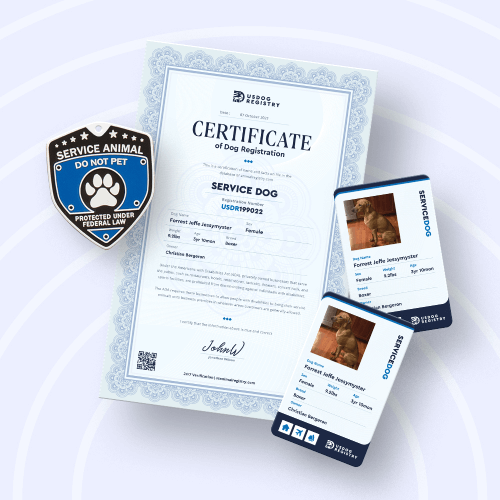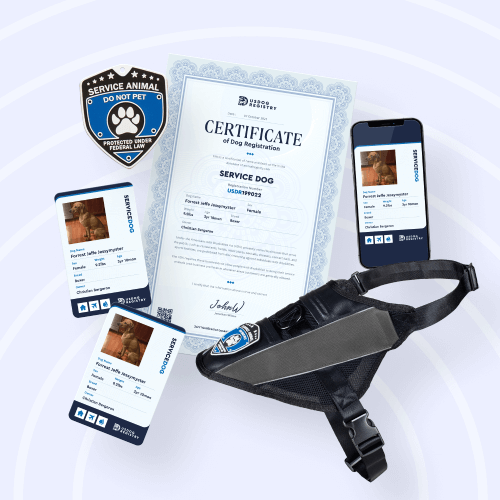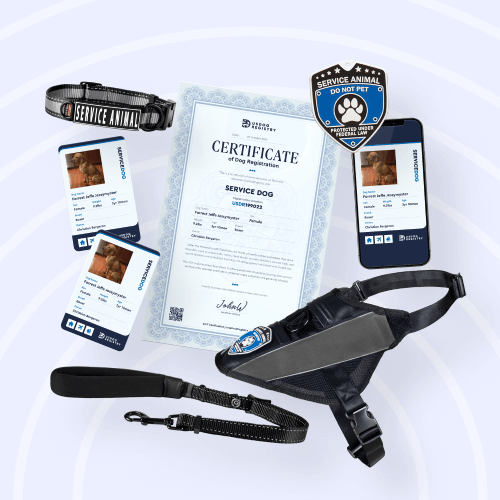Tired of being denied access
with your Psychiatric Service Dog?
Get Your Official Gear & Documents Here

Relax! We have you covered.
The #1 provider of complete solutions for Psychiatric Service Dogs.
-
Live, Travel and take your dog everywhere
-
FHA, ACAA and ADA Compliant
-
Hassle Free, Get Your Docs within 24 hours
















